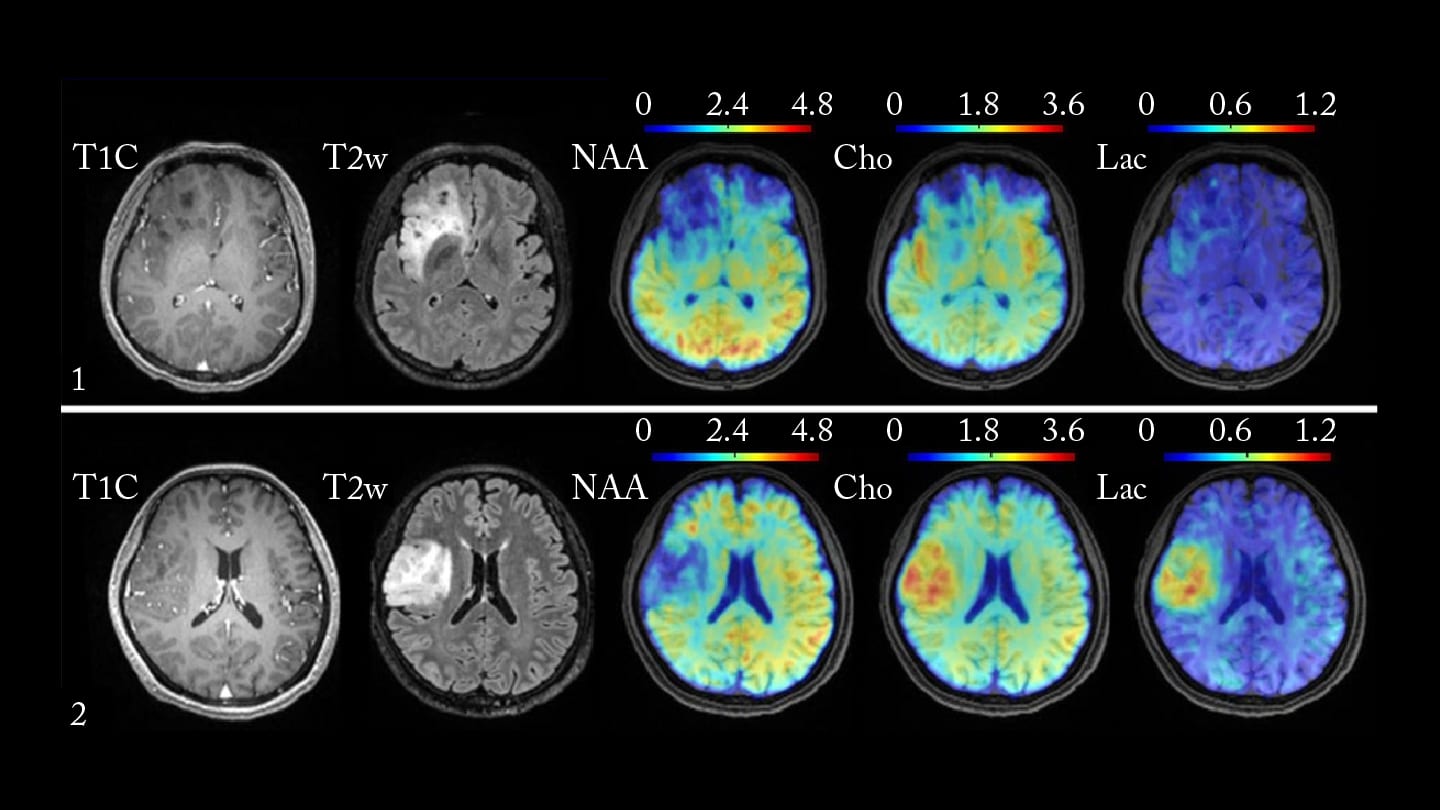
A new brain imaging technique can reveal metabolic abnormalities linked to tumors and neurological diseases in just over 12 minutes. The approach combines ultrafast J-resolved magnetic resonance spectroscopic imaging (MRSI) with physics-informed machine learning reconstruction to detect subtle molecular changes that precede structural abnormalities, according to a study published in Nature Biomedical Engineering.
“Understanding the brain, how it works and what goes wrong when it is injured or diseased is considered one of the most exciting and challenging scientific endeavors of our time,” said Zhi-Pei Liang, professor of electrical and computer engineering and senior author of the study in a press release. “Our new technology adds another dimension to MRI’s capability for brain imaging: visualization of brain metabolism and detection of metabolic alterations associated with brain diseases.”
Unlike conventional MRI, which captures anatomical detail, or fMRI, which maps blood oxygenation as a proxy for neural activity, MRSI detects resonances from a range of endogenous brain metabolites. These include neurotransmitters such as glutamate and glutamine, as well as biomarkers like choline, lactate, and myo-inositol. Such biochemical information has the potential to improve both the sensitivity and specificity of brain disease diagnosis.
“Metabolic and physiological changes often occur before structural and functional abnormalities are visible,” said first author Yibo Zhao, a postdoctoral researcher at Illinois. “Metabolic imaging, therefore, can lead to early diagnosis and intervention.”
The technique was tested in healthy individuals, patients with brain tumors, and individuals with multiple sclerosis. In healthy brains, it mapped regional variations in neurotransmitter levels. In patients with oligodendrogliomas, it distinguished between grade II and grade III tumors – identifying elevated levels of choline and lactate in high-grade tumors that were indistinguishable on clinical MRI. In multiple sclerosis cases, the method detected neuroinflammatory signatures and reduced neuronal activity as early as 70 days before visible lesion changes appeared on standard scans.
Whole-brain scans take just 12.5 minutes – significantly faster than typical MRSI protocols – thanks to a synergistic pairing of ultrafast spectral acquisition and machine learning algorithms that isolate low-concentration spectral features with high precision. The use of J-resolved spectral encoding also enables better separation of overlapping peaks, reducing ambiguity in metabolite assignment.
Importantly, the technique is compatible with standard 3T clinical MRI systems, making it potentially deployable in routine hospital settings without the need for specialized hardware.
“High-resolution whole-brain metabolic imaging has significant clinical potential,” Liang said. “As healthcare moves toward personalized, predictive, and precision medicine, this technology can provide a timely and effective tool to address an urgent unmet need.”
The authors note that the approach may also be useful in studying neurodegenerative diseases, traumatic brain injury, and psychiatric conditions – extending its relevance beyond oncology and autoimmune disorders.




